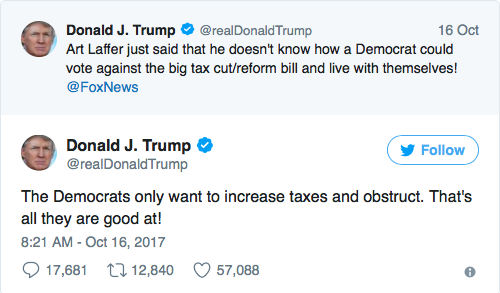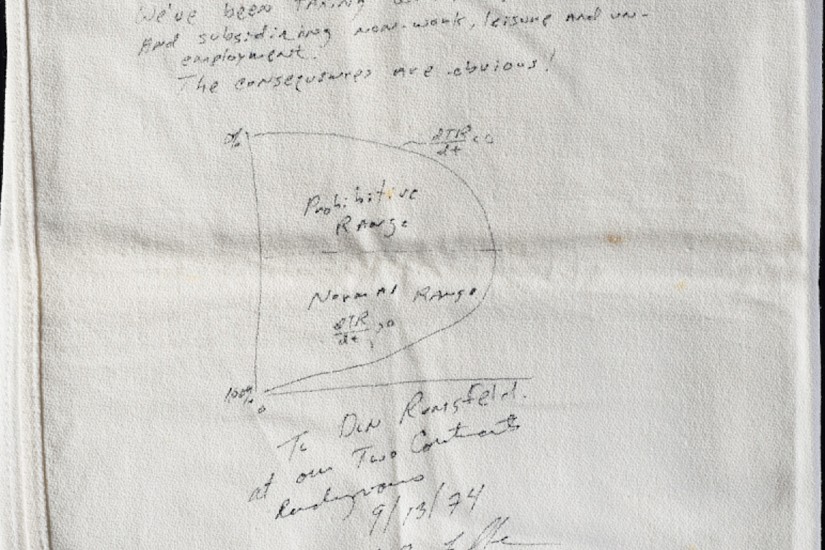The economist Arthur Laffer appeared early Monday on the Fox Business Network to defend the current president’s proposed tax cuts. “I’m hoping the Democrats vote with it. They should vote with it, they believe in it, they want it,” he said, wrongly. “To let this partisanship go to that extreme that they vote against America is, to me, shocking. I can’t imagine a lot of them not voting in favor of the president’s bill.” Minutes later, he added, “I just don’t know how a Democrat can honestly vote against this bill and hold his face up high to the electorate. It just doesn’t make sense to me.” Donald Trump, a known cable-news addict, tweeted later that morning:

Laffer might not be a familiar figure to many of Trump’s 40 million Twitter followers, but the former economic adviser to President Ronald Reagan is a giant within the Republican Party as the “godfather” of supply-side economics, the theory that cutting taxes and regulations creates economic growth (a cousin to trickle-down economics, which argues more specifically for tax cuts for the rich). In reality, though, Laffer is a Svengali or huckster who holds unconscionable influence on one of America’s two major parties, despite his ideas having been discredited—and not only by critics on the left—from the very beginning. That Trump and other Republican policymakers are promoting Laffer’s disproven theory yet again is the most damning evidence of the party’s intellectual rot.
The legend of Laffer begins with a bar napkin, on which he drew the famous “Laffer Curve” during a meeting in 1974 with Donald Rumsfeld, then President Gerald Ford’s chief of staff, and Dick Cheney, Rumsfeld’s deputy. The Smithsonian is currently displaying what they claim to be the original napkin, but Laffer himself disputes its authenticity, telling The New York Times that he thinks it’s a keepsake he created later. Still, the Smithsonian is right to to honor this most famous of American serviettes, the Magna Carta of modern Republican economics.
